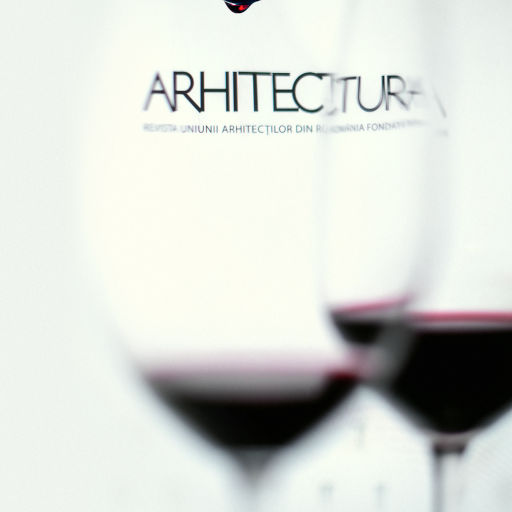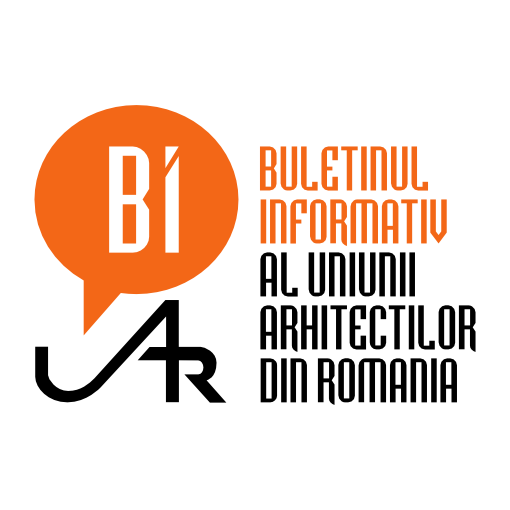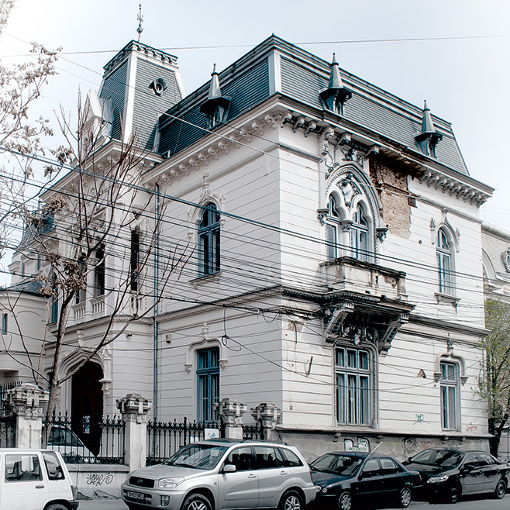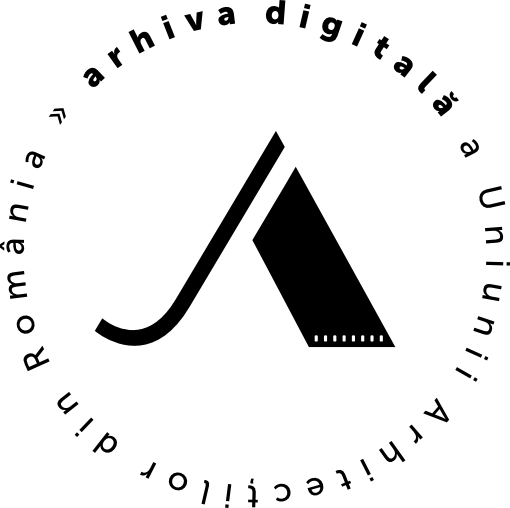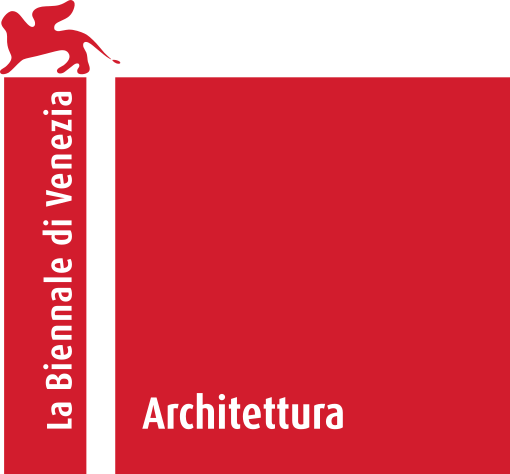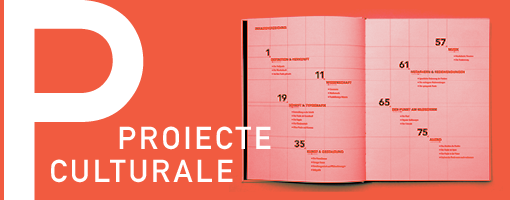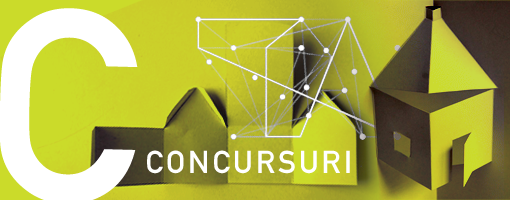Tabără de vară internațională la Oradea: “Attempts, Failures, Trials and Errors”, 15-22 iulie 2018
International Summer Camp on “Attempts, Failures, Trials and Errors”,
Oradea, Romania
July 15th– 22nd, 2018
Organized by 2580 Association Cluj in collaboration with the University of Oradea and Zest Collective Bucharest with the financial support of AFCN - Romanian Agency for Cultural Fund.
Application deadline: 22ndof June, 2018
CALL FOR APPLICATIONS
IDEA: Following a series of events organized in the frame of “Attempts, Failures, Trials and Errors” project, we invite you to a summer camp that will take place in Oradea (Romania) between 15th-22nd of July 2018. The topic of the summer camp is “SYSTEMIC FAILURES” and the focus will be on our attempts to design (or re-design) and to control our political, social, economic and technologic systems.
Digital technologies are today at the core of our activities, but they are mere tools/ infrastructures onto which political and economic visions are articulated. Instead of falling prey to the quasi-utopian technological determinism which positions machineries as the implicit conditions for more efficient communication and – hence- optimization of economies, we shall address the conditions and consequences of such assumptions. “Systemic failures” provide a methodological vantage point for the analysis of critical junctures between concepts and infrastructures, community of scientists and political fields, IT developers and society. We argue for a critical approach to “datafication”, for the understanding of the larger discursive contexts within which data is managed and, last but not least, we address the limits of such critical approaches with regards to more and more professionalized - hence hermetic – techno-fields. The historical insights will provide lessons about the tensions between planning and reality, but they will also reveal rhetorical models of handling new-born sciences.
The aim of this summer camp is to bring into discussion in order to further develop research projects related to different social and economic contexts. We also intend to encourage a heterogenous participation, one which will overpass the North-South and West-East European divisions.
ACTIVITIES:
During the summer camp will take place 6 workshops:
- Cybernetics Models in Economy – an Eastern European perspective(lead by Tincuta Heinzel & Ioana Macrea-Toma).The imposition of the industry was made possible through the extensive use of machines in production contexts. Designed to take over certain tasks previously realized by man, the machines have enlarged their area of applications. Cybernetics have been defined as the communication between man and machine and the conceptbrought with it the idea of various possible interactions between multiple aspects of economy-society-arts-policies. The sciences of management were given a new twist through the mathematization of economic cycles and the development of computers was modelled after what was considered the functioning of human brain. Even the arts followed suit envisioning themselves as autonomous self-regulating structures within a broader milieu. The cybernetic imagination stimulated a dialogue between different disciplines, countries and political factions due to the common assumption of transcultural, transnational and trans-political (if one may say so) potential of communicative action based on formalization of relations. This workshop will map some of the most interesting attempts at macro-management during the Cold War which consisted in technology transfer as well as international cooperation. Through these case studies we shall address the historical fantasies of quantification and computerization as politically neutral –concepts and infrastructures. In so doing we shall also open the larger discussion on social and infrastructural compatibilities and will address the need to imagine methodologies for grasping the complexities of such exchanges. This overview will be the starting point for a series of debates related to the present models of digital economies (AI, Big Data based economies) and the way they can fail us.
- The Laborious History of Computing (lead by RYBN).The workshop will consist in a clinic decomposition of a complexcomputing process. Participants will split up a perceptron (one of theearliest neural network) in a series of small operations, and then,will undergo through the whole process to understand how a computercategorizes different classes of objects.During the process, RYBN.ORG will retrace the laborious history ofalgorithmics: from the computation factory of Gaspard de Prony tothe Mechanical Turk of Amazon. In this counter-history of automation,the multiple narratives of the little hands at the heart of theprocess of calculation will be recalled, emphasizing the conditions ofemergence of the current regime of digital labour.The whole workshop will aim to demystify the actual hype around AI andcomplex computing procedures, by learning and understanding the basicsof digitalization and discretization.No particular skills are needed, the workshop uses only paper and pen.
- Illusory digitalization of life and the new forms of bio-colonialism(lead by Emmanuel Ferrand & Corina Catana). Modern biotechnologies, in their convergence with the digital paradigm, are supposed to be the new horizon of a globalized capitalism. Where the obsolete, extractive, fossil-based economy more than failed to provide us with a sustainable future, bioengineering and its new tools (CRISPR Cas9, ...) are presented to us as the key point for a possible "solution": new "green" bio fuels, a clean chemistry based on genetically modified microorganisms, plentiful supplies of food for an overcrowded and overheated planet (engineered crops, cellular agriculture, lab grown meat, ...), and even a new, fabricated, bio-diversity (concept of de-extinction).This workshop will be an occasion to evaluate to what extent this story is illusory, from a scientific view point, but also from a social, political view point. Those modern techniques are certainly not free of failures. There is a specific issue here for (bio) hackers and (bio) artists, who might be sometimes too easily fascinated by the promises of science.It will be also an occasion to share our experiences of the infinite complexity of living organisms and ecosystems, by, for example, replacing our understanding of biology and agriculture in its proper historical and cultural context. Local food traditions (fermentations ...) and farming techniques can be seen as low-tech biotechnological achievements of incredible social value (think for example of the patient work of generations and generations of farmers who selected crops and farming animals). This low-tech, modest approach of the living must be advocated at times when the countries formerly known as "Eastern Europe" are becoming once again the agro-industrial Eldorado / breadbasket of a globalized world.
- Tracking bucks in e-textiles (lead by Tincuta Heinzel). The workshop aims to introduce the participants to e-textiles and show them some of the issues they have to take care of while prototyping with e-textiles. No previous knowledge of electronics is needed. The materials will be provided by the organizers.
- Failing Parametrically (lead by Zoran Popovici & Ionut Patrascu).The workshop aims to familiarize the participants with themirage of the codein parametric design.Form finding with the aid of algorithms is atwo-day workshop which will help the participants to get familiarize with Rhinoceros 3D and Grasshopper. The results will be later on discussed in order to find some pitfalls of current trends like Algorithm Aided Design and Parametricism. No prior knowledge of Rhinoceros or Grasshopper is required, just the will to spend two days understanding how algorithms shape the world around us. Note: 2 days workshop for 15 participants.
- Drones and Don'ts (lead by Octavian Fedorovici & Stelian Saracut). “Drone I'd Like to Fly" is the failed open-source project that team Techarus from Cluj-Napoca submitted to NASA Space Apps Challenge back in 2016. Octavian Fedorovici and Stelian Saracut, members of the team who are still enthusiastic about emergingdrone technologies, will host the workshop and talk about the challenges they had to face with their app and how drones can be hacked, custom controlled and repurposed. Note: 2 days workshop for 15 participants.
For a detailed schedule, please see the attached document: Summer_Camp_Oradea_Program.xlsx
TARGET GROUP: Undergraduate and graduate students, scholars, artists, designers, architects, economists, historians, technologists, biologists, philosophers, etc. interested in learning more about the ways in which digitalization has an impact on the way we cultivate, project and build, the way in which digitalization has an impact on our societies and economies.
VENUE: The summer camp will take place in the campus of the University of Oradea. Situated in North-West Romania, once part of Austrian-Hungarian Empire and completely redesigned during the communist era, Oradea is well known for its thermal waters and its Art Nouveau buildings. For more details: https://en.wikipedia.org/wiki/Oradea.
TRAVEL: Oradea has an airport. Other travel options are to fly to Cluj, Timisoara or Budapest (Hungary) and then take the train.
ORGANIZERS:
Tincuta Heinzel – tinca@textiltronics.com
Corina Andor – corinastus@yahoo.com
Ioana Popescu – ioana@zestcollective.ro
MAXIMUM NUMBERS OF PARTICIPANTS: 30 persons
COSTS: Accommodation, main meals and materials for the workshops will be covered by the organizers. Participants have to arrange for their travel to Oradea and possible accommodation before orafter Oradea themselves.
APPLICATION DEADLINE: Applications are accepted until 22ndof June 2018. Please email a short motivation letter, a CV and a portfolio to the following email address: design@zestcollective.ro. Please specify in your letter for which of the last two workshops are you opting.
SELECTION RESULTS: 26thof June 2018.
NOTE: For the Romanian student participants, Edukube will provide the necessary documentation for the summer internships.
WORKSHOP COORDINATORS:
CORINA CATANA is Head of the Centre for Biodiversity and Conservation (CBC), Faculty of Horticulture, UASVM Cluj-Napoca. She coordinates research projects on in vitro culture techniques and systems to understand the plant cell functional activity, genetic manipulation, modelling and analysis of risk scenarios for biosecurity / genetically modified organisms. Part of the work is dedicated to wildcrafting - collecting plant material (seeds and plants) from natural sources and cultivated areas, inventory and storage of the local populations of economic interest for the CBC`s germplasm collection, virtual herbarium (barcode system, Genebank Information Management System, OLTP, Standard Material Transfer Agreement) and circulation and exchange of germplasm material (international databases and networking). She also coordinates the activities of BioArt group, founded in 2009, at UASVM Cluj-Napoca, in association with University of Art and Design (UAD) Cluj-Napoca.
OCTAVIAN FEDOROVICI is a developer and multimedia artist based in Cluj-Napoca, Romania. He is passionate about photography, video art, animation, op and net art, while also demonstrating a history of professional work as a full-stack developer in the information technology and services industry.
EMMANUEL FERRAND is an engineer and mathematician (Sorbonne University, Paris, France), with a deep interest for biological complexity, and the intrinsic limitations of the mathematical models in biology.Also active in "La Générale", an independent culture space in Paris, where citizen science and open technology is actively promoted (Free Fermentology Foundation) together with urban farming and many artistic projects. Website: http://lagenerale.fr
TINCUTA HEINZEL is Senior Lecturer at Loughborough University UK. Over the last 14 years she worked extensively in the field of electronic and reactive textiles, and conduct research on art and design theory and philosophy of design and technology. She initiated, curated and/or coordinated several projects, such as “Artists in Industry” (Bucharest, 2011-2013) and “Haptosonics” (Oslo, 2013), “Repertories of (in)discreetness” (Budapest- Bucharest, 2013-2015). She is member of 2580 Association (Cluj, Romania) and of Paidia Institute (Cologne, Germany).
IOANA MACREA - TOMA is researcher at OSA Archives Budapest, Hungary. Trained in philology, comparative literature and history, Ioana is interested in the study of knowledge formation through the perspective of archival and media theories, the history of science and philosophy of history. She wrote about the history of intellectuals and the interplay of perception about the Other by observing cognitive systems during the Cold War (Radio Free Europe, Secret Police, intellectuals within the literary field and listeners to the radio).
IONUT PATRASCU is an architect and computational designer. During university studies, he explored through volunteering, workshops and competitions sustainable architecture, traditional vernacular building techniques, built heritage rehabilitation, architectural publishing. However, he best identifies himself with algorithmic design and digital fabrication, fields in which he worked as part of ZEST Collective and currently with IDZ Architectura studio.
ZORAN POPOVICI studied architecture and, slightly out of context, motorcycle mechanic. Currently digital storyteller and expert virtual studio creator at TVR, the Romanian Public Broadcasting network. Prior to that, Co-Founding & Directing edukube, an educational hub for digital tools used in art and architecture focused on lecturing, teaching and holding workshops in multiple 3d software and real-time applications.
RYBN.ORG is an extra-disciplinary artistic research platform createdin 1999. RYBN.ORG leads investigations within the realms ofhigh-frequency economics and information technologies, writingkabbalistic algorithms, inserting suicidal trading machines into thefinancial markets, perverting neural networks during their trainingphase or hunting ghosts in the noise of data traffic.The works of RYBN.ORG have been shown in numerous contemporary artexhibitions such as Infosphäre (ZKM), Nervöse System (HKW), the GlobalContemporary (ZKM), 2062 (la Gaîté Lyrique), Stock Overflow (iMAL), ElProcesso Como Paradigma (LABoral), Gutes Böses Geld (KunsthalleBaden-Baden), Requiem for a Bank (HMKV), Media Mediums (Ygrec), StockOverflow (iMAL), l'espace Virtuel du Jeu de Paume, CNAP; and numerousmedia art festivals, such as ISEA, Transmediale/CTM, Pixelache,Malaupixel, NEMO, Elektra, Cellsbutton, Ars Electronica. Website:http://www.rybn.org
STELIAN SARACUT is an electronics enthusiast since childhood. He is currently working as a software developer and in his spare time he builds Mega Sumo robots for international competitions. He likes working with anything from vacuum tubes to FPGAs.
